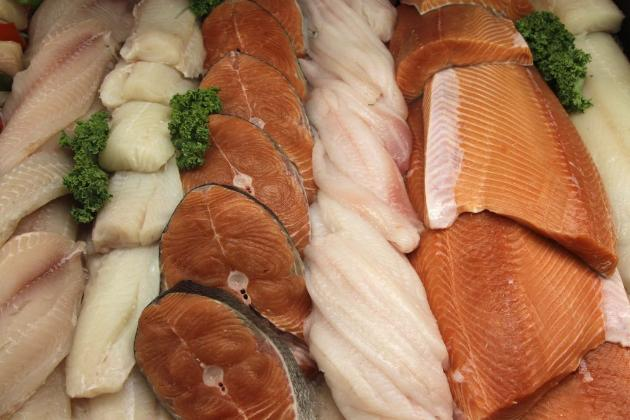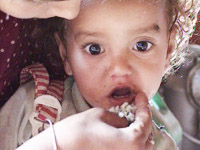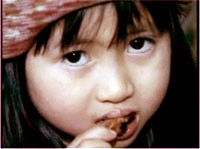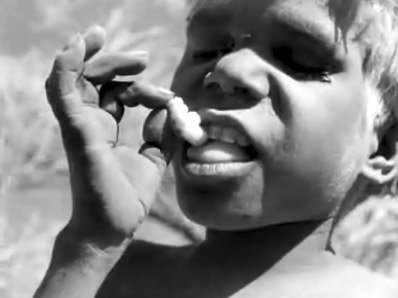Related
An editorial headline in The New York Times not so long ago noted . . . Japan Is Back in the Hunt for Whales (A Whale of an International Court Ruling Against Japan -- The New York Times (Sunday Review, p. 8, 01 April 2014). “Claiming purely ‘scientific’ motives, Japan's political leaders are cynically planning to resume whale hunting in the Southern Ocean, despite the International Court of Justice finding that the Japanese government regularly violated its obligations under the international ban against commercial whaling off Antarctica. . . .”

Minneapolis StarTribune
On the other hand, awhile back the Minneapolis StarTribune and The New York Times featured an article on sustainable seafood: “Whole Foods opts for ‘sustainable’ seafoods”. Many of the themes you’ve seen in The Last of the Line, We Feed the World, and this week’s The Cove and elsewhere are covered in the StarTribune article. More information is available at <http://www.startribune.com/nation/148399445.html>.
Not so long ago when my wife, Kim, and I visited O’ahu—in the middle of the Pacific Ocean, it was reported that most of the fish served in Hawai’i are not caught locally. They used to be. But now they’re flown in (adding lots of “food miles” to the catch, and increasing our carbon footprint), or they’re farmed (which some suggest is adding to the demise of native species). Either way, it’s a shame that a place built on fishing no longer fishes to any great extent.
Fish in Chinatown were the exception, but then Chines tend to prefer to purchase their fish still alive, not like the Japanese, as you will see in the film The Cove. (Speaking of Chinatown, in O’ahu in the middle of the Pacific Ocean, the restaurant Soho [named after the district in London] specializes in Chicago deep-dish pizza.)
The 2010 Oscar for Best Feature Documentary went to The Cove! With an Oscar and more than two dozen other notable international awards The Cove, directed by former National Geographic photographer Louie Psihoyos, and featuring “Flipper[s]” trainer Rick O’Berry, is not without controversy—lots of it.
There’s no question that the film is well done. Its Oscar alone attests to that.
But the film raises several ethical questions, including moral questions pertaining to its own filming, the Japanese whaling industry, dolphin drive-hunting, hunting in general, treatment of animals in aquariums and marine parks (read Sea World), treatment of animals in captivity in general, ocean conservation, dolphin suicide, animal mental health, illegal protesting, illegal sales of mercury-tainted food to the general public and to school lunch programs, the alleged "buying" by Japan of votes in the International Whaling Commission, government and industry corruption, whistle blowing, concerted efforts to pass “ag-gag” laws making it illegal to collect photographic information on purported illegal CAFOs, sea-harvesting, and the ilk (read more laws like the ones under which Oprah was sued in a two-month trial by Texas Beef for saying she would not eat another burger—and which cost her a million dollars to defend herself) . . . and the list goes on, but not before adding killing and meat eating and lying and racial bigotry and psychopathic individual and corporate greed, and the government banning of books and films to the list.
Some recent “ag-gag” news includes . . .
And some critics charge that The Cove is film espionage aimed at producing “well-made propaganda.” It is said that David Cox of The Guardian Film Blog called it a "piece of evangelism," and opined that from a Japanese point of view "Westerners . . . kill and eat cows. Easterners eat dolphins. What's the difference?" (Wikipedia). Cox’s comments should bring to mind FRESH and Food, Inc.
The same folks noting David Cox’s wisdom above favorably quote academic Ilan Kapoor, echoing the famous phrase by Gayatri Spivak, who argues that "it's a case of (mostly) 'white men saving cute dolphins from yellow men'" (Wikipedia).
The Cove should bring to mind the film segment on the Makah Indians returning to their ancient tradition of hunting and eating whale, to the displeasure of some non-Makah, from Episode 2: "Food & Culture" of Marcus Samuelsson’s The Meaning of Food.
And The Cove should bring to mind the “American Indian Whaling and Fishing Rights” class Forum of Week 6, and the questions surrounding that.
And The Cove should bring to mind the “Fishing Yesterday and Fishing Today” segment from the film We Feed the World.
And The Cove should bring to mind the film The End of the Line: How Overfishing Is Changing the World And What We Eat.
The international fishing/whaling/fish farming situation is complicated, but then again it might just be the “canary in the mine” for industrial agriculture in general.
In Week 1 we argued that one of the defining characteristics of anthropology was its commitment to trying to understand phenomena in a comparative and holistic manner. In this week’s Forum you have an opportunity to try holistic comparative analysis for yourself.
In thinking about sustainable seafood and The Cove be sure to have a look at the course WebSite on Whales <http://www.d.umn.edu/cla/faculty/troufs/anthfood/afwhales.html> and on Fish <http://www.d.umn.edu/cla/faculty/troufs/anthfood/affish.html>. And if you really want a holistic view throw in Lobsters <http://www.d.umn.edu/cla/faculty/troufs/anthfood/aflobster.html> and have a look at the rise and fall and rise and fall and rise of the New England lobster industry. And don’t forget to include genetically modified (GM) fish, some of which glow in the dark <http://en.wikipedia.org/wiki/GloFish> <http://www.d.umn.edu/cla/faculty/troufs/anthfood/afgmfoods.html>.
Paul Greenberg’s
Four Fish: The Future of the Last Wild Food (NY: Penguin Press, 2010). [Review:
Catch of the Day, Sam Sifton—New York Times Sunday Book Review (29 July 2010)] is a very a nice little book.
Four Fish “takes as its subject the global fisheries market and the relationship humans have with tuna, cod, sea bass and salmon. Tuna fishing also kills dolphins, although unintentionally, unlike in
The Cove,
Four Fish deals with Bluefin Tuna on the Japanese market, like
The Cove.
Four Fish should bring to mind
The Cove. And that should bring to mind international food regulatory agencies, including the
International Whaling Commission (IWC). All of these fish “appear” in the StarTribune article mentioned above.





